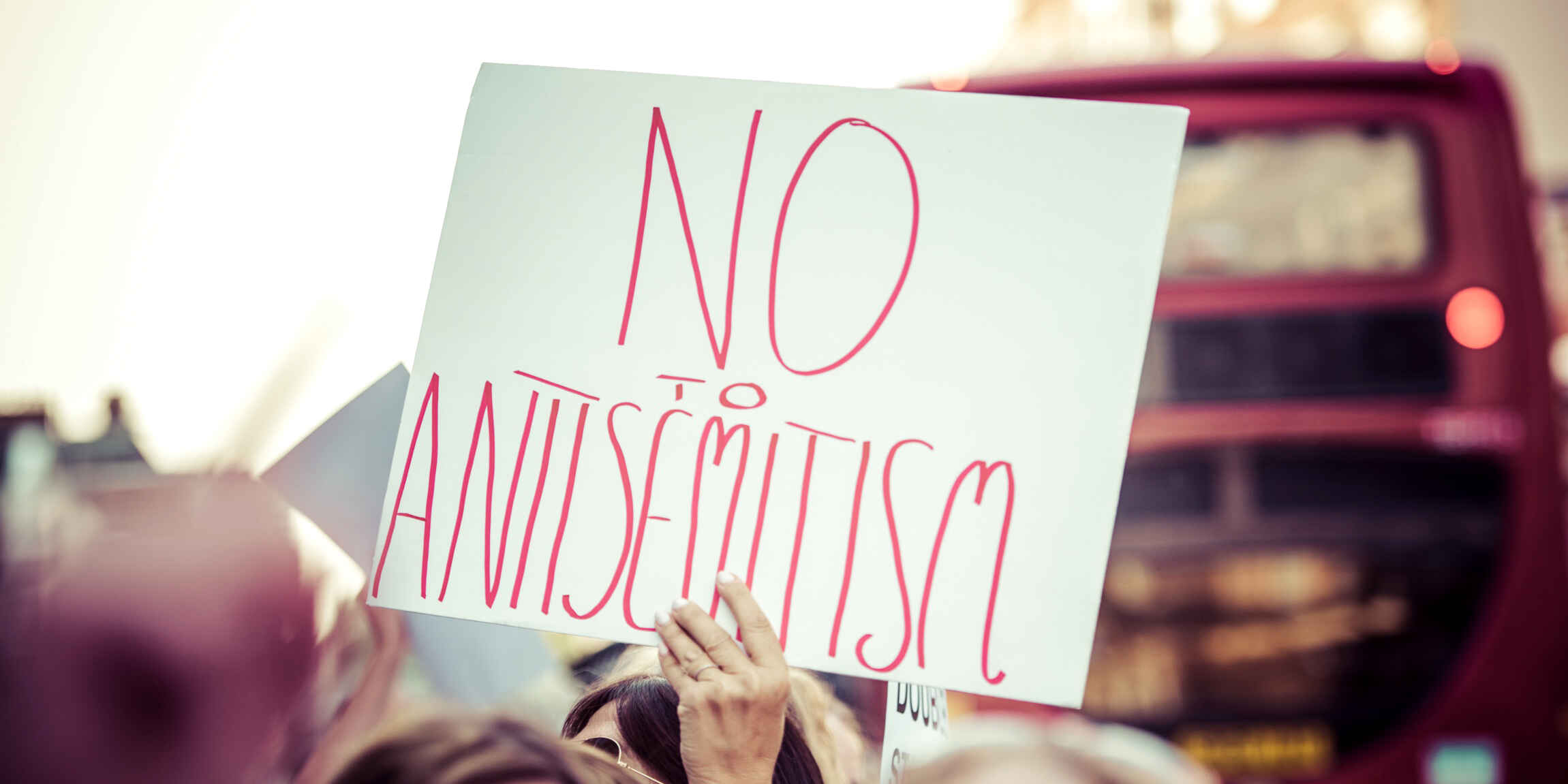CST Blog
Jeremy Corbyn needs to do much better to convince Jews he acts in good faith
13 August 2018

This article, by CST's Head of Policy Dr Dave Rich, originally appeared in the Guardian on 5 August 2018:
On Friday evening, Jeremy Corbyn tried to persuade Britain’s Jewish community, via the Guardian, that the Labour party is not a threat to their life in Britain. It is staggering that a Labour leader should feel compelled to make such a claim, and a mark of how low Corbyn’s standing has fallen that he is the last person most British Jews would trust to give them that assurance.
This is the result of more than two years of scandalous antisemitic behaviour within Labour, and of Corbyn’s failure to deal with it. There have been regular (and often unpunished) examples of antisemitism from Labour members. There was the failure to expel Ken Livingstone for his repeatedly offensive remarks. Shami Chakrabarti’s report on antisemitism in the party was widely perceived to be a whitewash. Party officials obstructed disciplinary cases. There have been antisemitic outbursts at national executive committee meetings and antisemitic slurs in Corbyn-supporting Facebook groups. Throughout it all, a passive party leader sat, watching and doing nothing.
Corbyn’s Guardian article included all the platitudes he has used in the past, to the extent that parts were literally copied word for word from his last article on the subject in April, but it didn’t get anywhere near explaining why antisemitism has become so prevalent in his party. For Corbyn, it is still a problem of a relative handful of members – “less than 0.1%” – making unwanted comments, rather than a political culture that has embedded itself. Nor has he apologised for, or even acknowledged, his central role in building the far-left politics in which this antisemitism has found a home.
Corbyn wrote that: “In the 1970s some on the left mistakenly argued that ‘Zionism is racism’,” but – in an almost Trump-esque whitewash – failed to acknowledge that he spent years campaigning for just that position. One group he sponsored and actively promoted in the 1980s, the Labour Movement Campaign for Palestine, believed Zionism was “inherently racist” and pledged to eradicate it from the Labour party. He said people who spread “conspiracy theories blaming 9/11 on Israel … have no place in the Labour party”, but ignored the fact that he has peddled similar conspiracy theories about “the hand of Israel” being behind jihadist terrorism in Egypt. He condemned those who indulge in Holocaust denial and “crude stereotypes about Jewish bankers”, but made no mention of his involvement with a group that supported French Holocaust denier Roger Garaudy in the 1990s, or his support for an antisemitic mural of – you guessed it – Jewish bankers, which he subsequently claimed not to have properly looked at.
Corbyn’s determination to rewrite the definition of antisemitism provided by the International Holocaust Remembrance Alliance (IHRA) reveals the duplicity at the heart of Labour’s strategy. The IHRA definition, supported by most in the Jewish community and widely used elsewhere, includes 11 examples of potentially antisemitic speech; Corbyn wrote that the disagreement between the Jewish community and the Labour party is over “half of one example out of 11”. This is untrue, and Corbyn must know it is untrue.
The problem is that Labour has removed, downgraded or rewritten four of the 11 examples. Its new code, for example, says that comparing Israel to Nazi Germany will not be considered antisemitic unless it is accompanied by “evidence of antisemitic intent”. Claiming British Jews are more loyal to Israel than to Britain, rather than something “likely to be antisemitic”, is simply described as “wrong”.
These changes are not mere semantics. Last September, the party adopted a new rule that made antisemitism and other forms of prejudice automatic offences. This rule, combined with the IHRA definition and all its examples, could be a powerful tool to sanction Labour members expressing antisemitic views; but instead of embracing this opportunity, Corbyn fears its consequences. His solution is to redefine antisemitism and circumvent Labour’s rules so that they can’t be used against his own supporters, or even against himself, allowing people making antisemitic statements to simply apologise for causing offence and thereby avoid any punishment.
Corbyn claims this is a “good faith attempt” to tackle antisemitism while ensuring free speech for Israel’s critics. In truth, it is just another example of the hard left putting factional politics ahead of moral principle. For as long as this is Labour’s approach, the party’s crisis of antisemitism will endure and its critics will increasingly ask whether it is Jeremy Corbyn’s own record that lies at the heart of the problem.
Read More

Love since 7 October
14 February 2025

Antisemitic Incidents Report 2024
12 February 2025

The Fall of Assad and the Zionist “Evil Plan”
8 January 2025